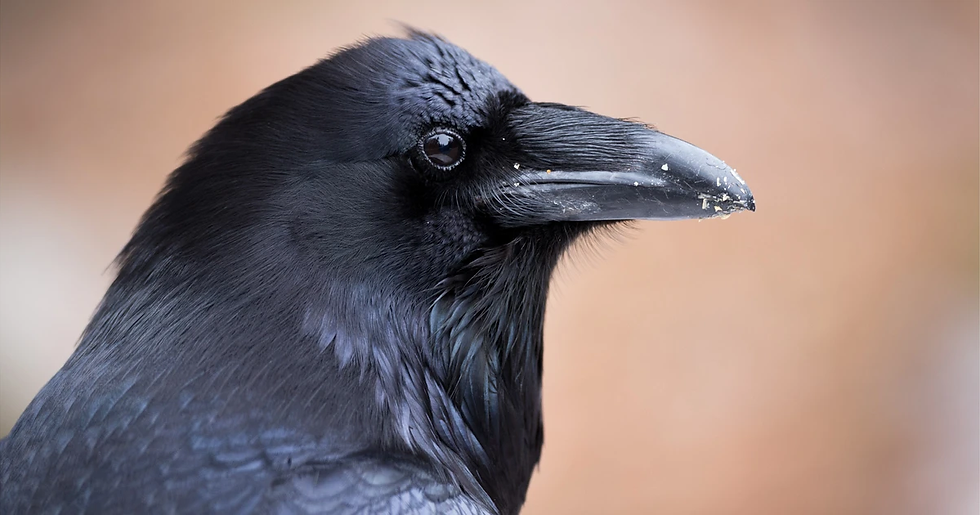Week 3: Bird Brain
- Lawrence Zhu
- Apr 21, 2024
- 3 min read
Pictured: A Rea Parrot, the subject of a number of scientific experiments with regards to their intelligence, social behaviors, and problem solving skills.
This week, we watched the Nova documentary "Bird Brain." Centered primarily around the two species of bird, Rea Parrots and Ravens, it was a fascinating dive into the cognitive processes behind some of the most intelligent birds in the avian family.
The documentary, as any good documentary is, was peppered with sound bites from experts in the field. Three of them stood out to me as especially well spoken with regards to birds. The first was John Marzluff who, at the time, was a professor at University of Washington. In the documentary, he spoke on the behavioral outcomes that stem from the cognitive capabilities of more intelligent birds. The second was Valérie Dufour, a researcher from the University of Strasbourg who conducted several experiments on rook birds. In the documentary, she examines their ability for learning through observation, in the context of their grand social networks. Lastly, I was especially interested in Konrad Lorenz, an Austrian zoologist who, though now passed away, heavily influenced the fields of science examined throughout this documentary. His work regarding the difference between an instinctual behavior and a learned behavior is an especially important work in context of today's studies.
All throughout the documentary, thanks to the researchers mentioned above, among many others, are wonderful and insightful quotes that not only shed light on the dynamics of bird intelligence, but pose meaningful questions about what that might mean. John Marzluff states that "the ability to think flexibly is certainly a hallmark of a cognitively advanced animal. Rather than having a set response to a stimulus every time, as Lorenz worked upon, now you've got a whole battery of responses that could be put into play." (21:33) Here, Marzluff demonstrates the fundamental difference between instinctual and learned behavior and how it is a great indicator of intelligence in animals. Charmingly, the documentary goes on to add that, "like humans, birds seem to learn new things by playing" (22:00) This was especially striking to me for not only being a cute concept, but also making me wonder just how much birds and people have in common in terms of how we process and learn about the world around us, a prevalent theme throughout the documentary. Later on, a highly fascinating statement made by researcher Christina Riehl of Princeton University notes that "There’s a hypothesis, the social intelligence hypothesis, that proposes that the selective pressures of living in these groups and having to meet all these challenges has favored the evolution of a brain that can do more complex cognitive processing," (28:30) which I found to be an incredibly interesting explanation for why it is that some birds might possess greater intelligence than other species.
Overall, Bird Brain was a deeply fascinating look at the intelligent world of birds, one which I barely even known about prior to watching this documentary. The selection of researchers was wonderful, comprehensive, and their findings were made easily digestible through this documentary format. The accessibility of more complicated scientific topics brought me back to the TIME articles we covered, especially "Mourning" by Jeffrey Kluger. When researchers examined how crows behave when finding one of their own kind dead, I thought back on this article and wondered what implications this behavior might have on how intelligent we know crows to be.
Thanks for reading! See y'all next week!













Comments